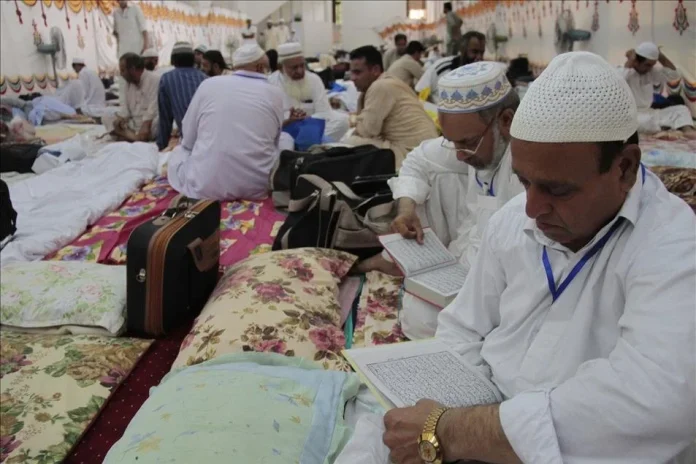During the holy month of Ramadan, Muslims in Pakistan engage in various spiritual practices to deepen their connection with Allah and seek His blessings.
One of the most significant and highly revered practices observed during this time is Aitekaf. Aitekaf is a spiritual retreat that is undertaken in the final 10 days of Ramadan, where believers dedicate themselves to solitary prayer, reflection, and seeking closeness to Allah, following the tradition set by Prophet Muhammad (PBUH).
Starting from the 20th day of Ramadan, men in the Muslim community seclude themselves within mosques to observe Aitekaf. They spend these last ten days and nights in continuous prayer, recitation of the Holy Quran, and deep spiritual contemplation.
This period is considered a time of intense devotion, where believers disconnect from worldly distractions and focus solely on their spiritual journey, seeking closeness to Allah and His divine blessings.
On the other hand, women who wish to observe Aitekaf do so within the confines of their homes. They dedicate themselves to increased prayer, recitation of the Quran, and spiritual reflection, creating a sacred space within their homes for worship and spiritual growth.
The term “Aitekaf” translates to “devotion to a thing and sticking to it,” signifying the unwavering commitment and dedication of the believers to their spiritual journey during this period.
After the Asr prayer on the designated day, millions of faithful believers across Pakistan commence their Aitekaf, immersing themselves in worship and seeking divine favor, mercy, and forgiveness.
To facilitate and support those observing Aitekaf, mosques across the nation make special arrangements to provide a conducive environment for worship and spiritual contemplation.
These arrangements include designated areas within the mosques where men can seclude themselves, ensuring privacy, tranquility, and a peaceful environment for their spiritual practices. Additionally, some mosques, along with the support of generous philanthropists and community members, arrange for sehri and iftar meals.
This communal aspect allows the participants to break their fast together and partake in the pre-dawn meal, fostering a sense of community and unity among the worshippers.
In the bustling city of Lahore, which is known for its rich cultural and religious heritage, hundreds of devout individuals choose to observe Aitekaf in several prominent mosques. The historic Data Sahib Mosque, the iconic Badshahi Mosque, and the Minhajul Quran Mosque founded by Tahirul Qadri are among the popular mosques where Aitekaf is observed.
These mosques become hubs of spiritual activity during the last ten days of Ramadan, with worshippers engaging in fervent prayer, recitation of the Holy Quran, and seeking closeness to Allah.
The culmination of the Aitekaf period occurs upon the sighting of the Eid moon, marking the end of Ramadan and the beginning of the joyous celebrations of Eid-ul-Fitr. For many Muslims in Pakistan, the practice of Aitekaf is a spiritually enriching and transformative experience.
It provides them with a unique and invaluable opportunity for introspection, self-reflection, and deepening their connection with Allah during the blessed and sacred month of Ramadan.


